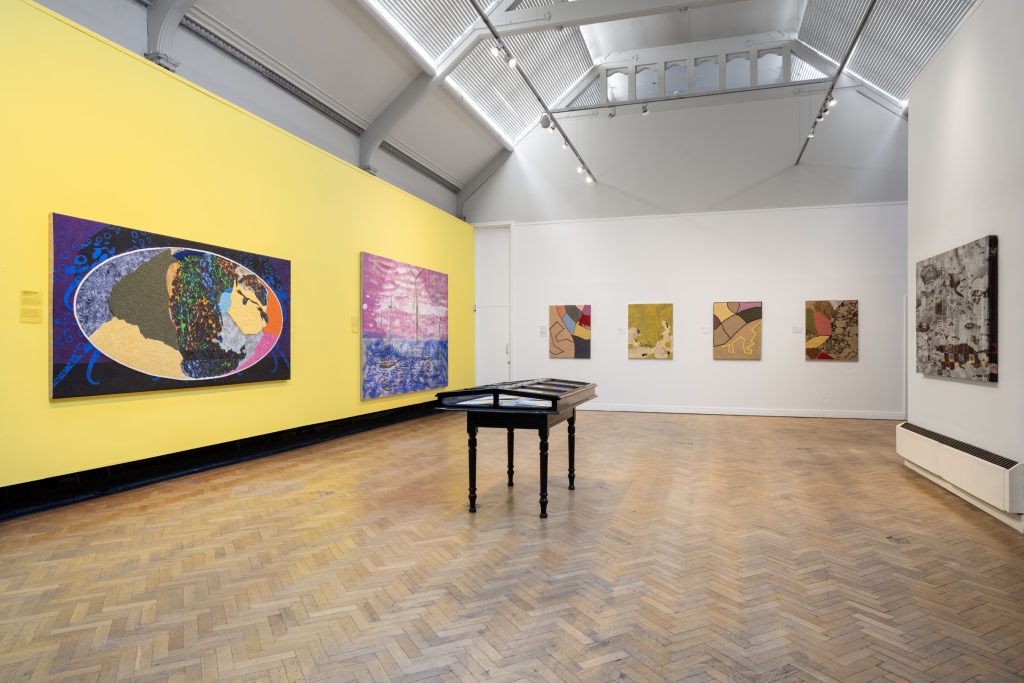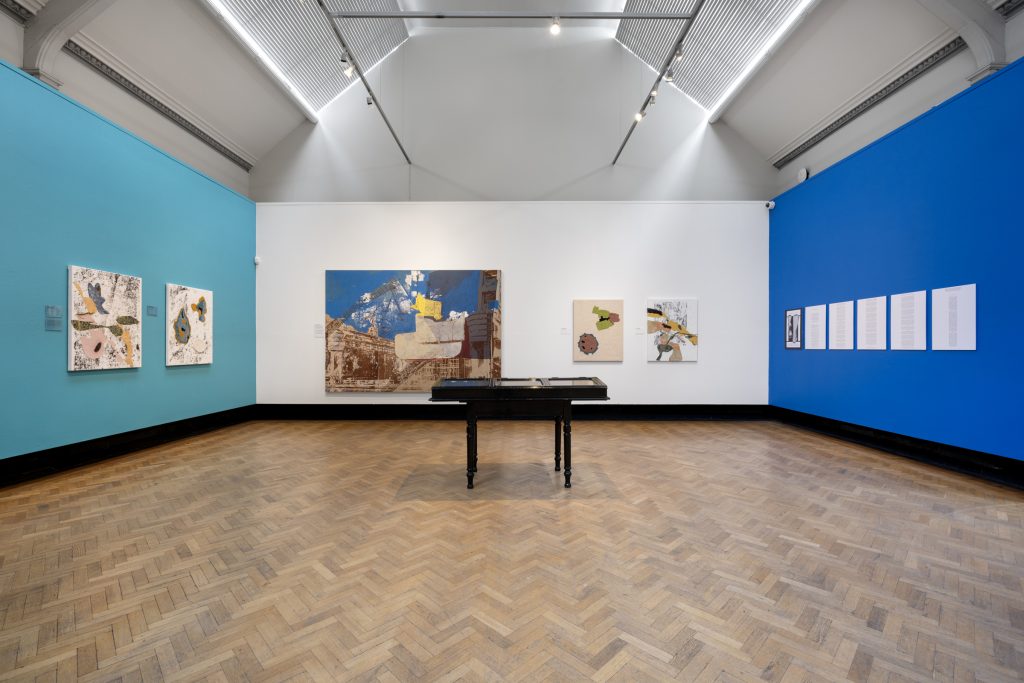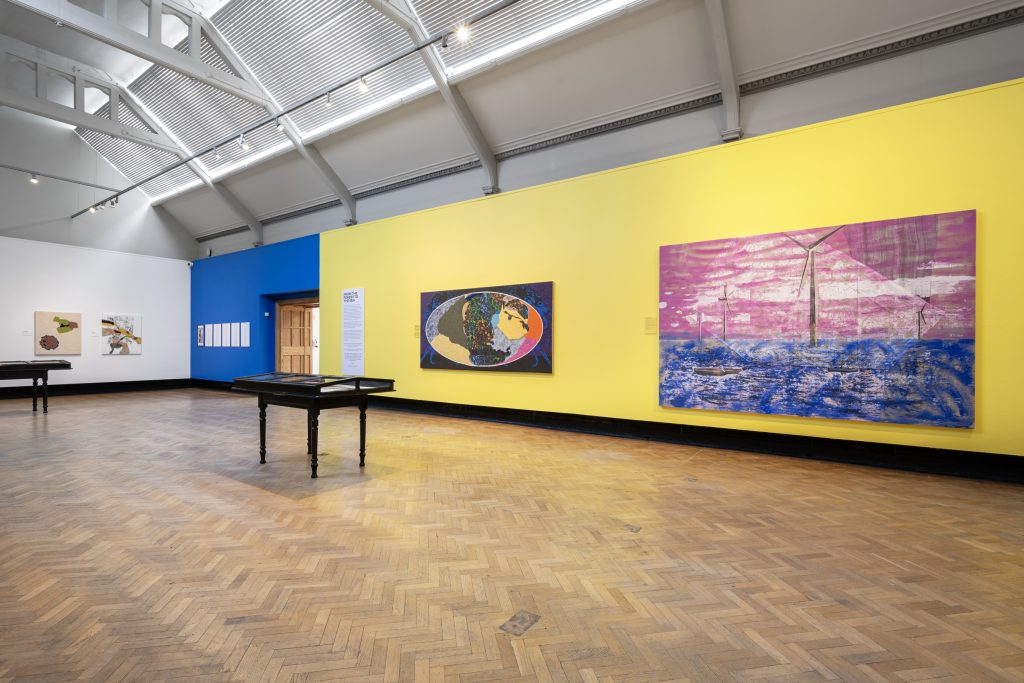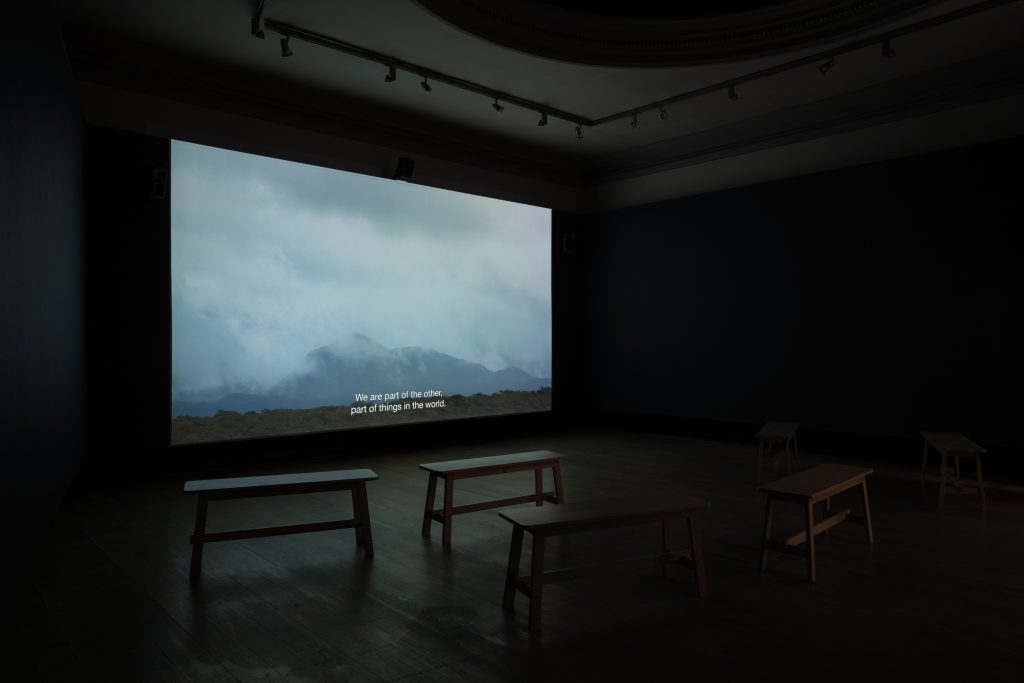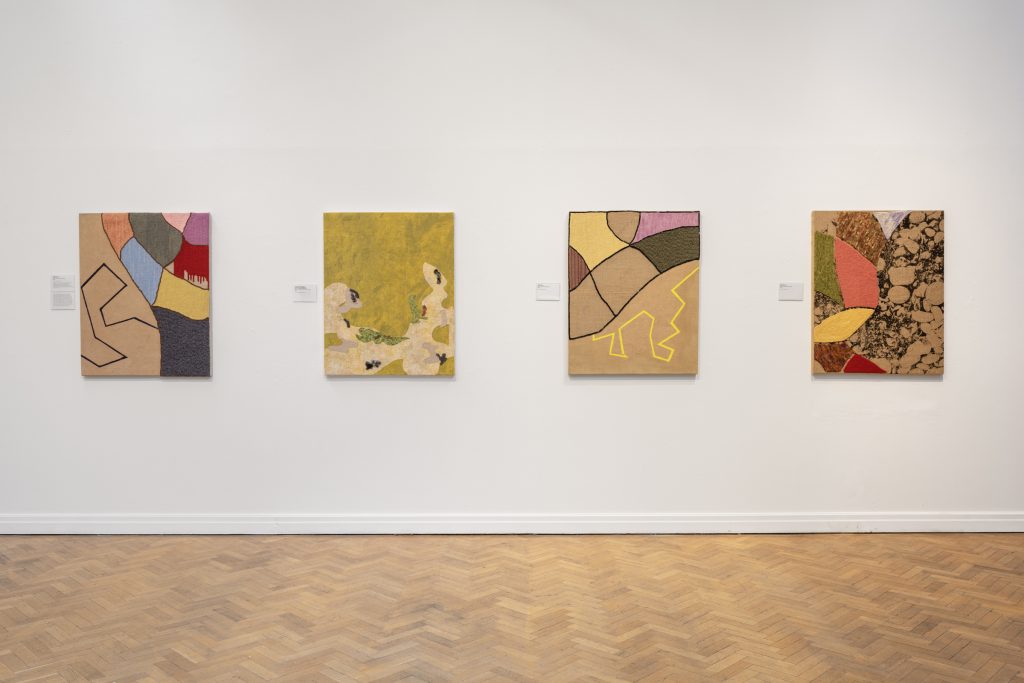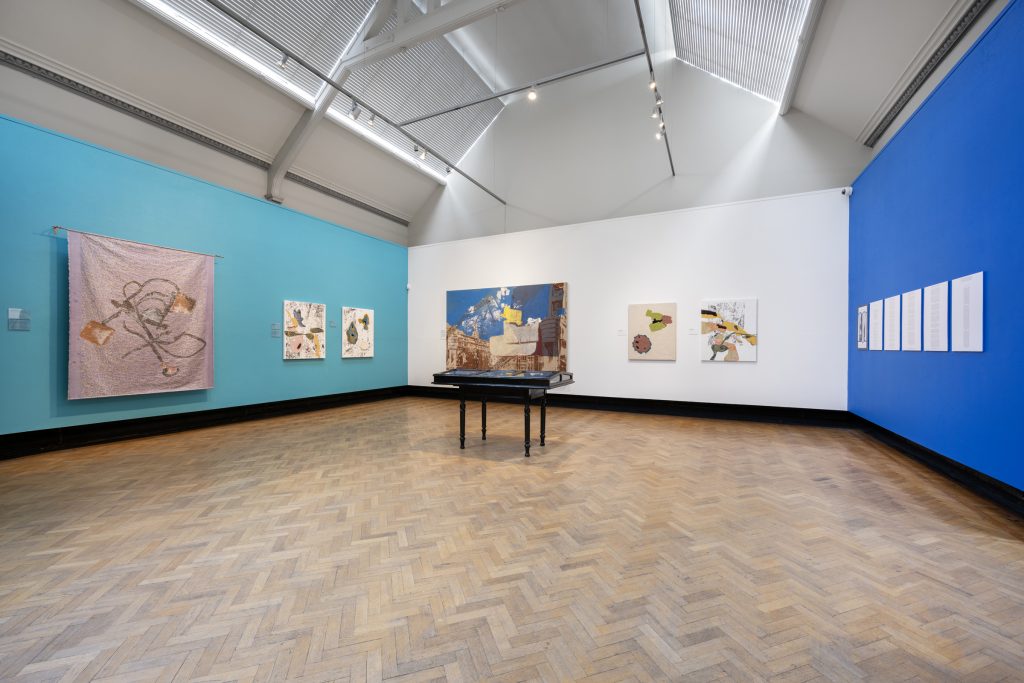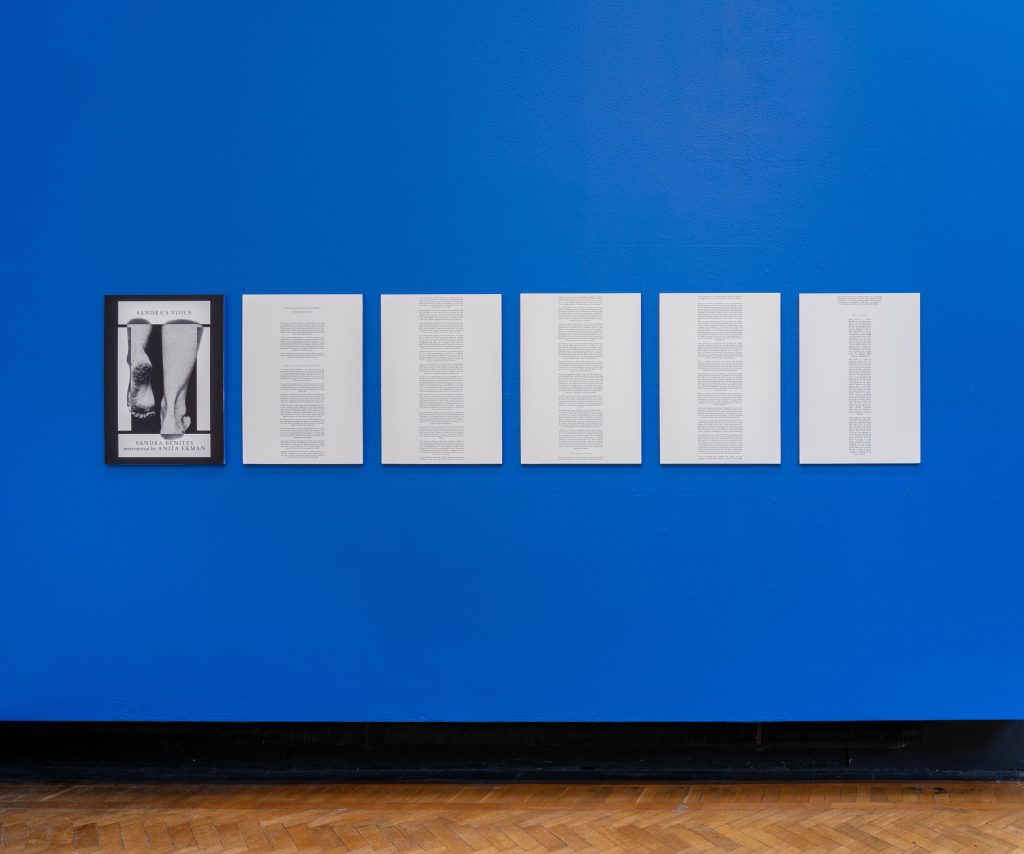EXHIBITION
Leviathan: From the Forest to the Sea premieres Episode 8: Cris, Sandra, Papa & Yasmine, the latest episode in Shezad Dawood’s epic film series, Leviathan Cycle, that considers some of the urgent issues of our time such as climate change. Episode 8 was developed remotely in collaboration with Guarani scriptwriters, directors and activists Carlos Papá, Cristine Takuá, Sandra Benites, and Brazilian artist and researcher Anita Ekman. This film not only expands the collective and horizontal filmmaking method that has become a central feature of the cycle’s second half, but reduces its own environmental impact through an intimate yet remote co-authorship.
Set in the Brazilian Atlantic Forest – one of the most ecologically diverse and threatened biomes on earth – Episode 8 blends indigenous cosmology with fictional narrative, shot footage and especially commissioned animation by Anita Ekman, to chart an embodied, spiritual and ecological journey along the age-old Guarani path that links the forest to the sea.
Alongside this new film in Gallery One, Dawood will also be showing a series of existing Leviathan works in Gallery Two. The plurality of voices involved in the Leviathan universe is manifested in the multiplicity of media on show: from watercolour to textile-based painting, and from traditional craft techniques to the research papers that contribute to each part of the process. The accompanying works interrogate our evolving relationship to the forest and the sea, land-use, histories of economic and social process, deep time and future marine environments.
A newly commissioned paper Sandra’s Voice was on display during the exhibition and can be read here
Public Programme
More-than-human collaborations
This discussion brought together academics of literature, performance, science, and visual arts with Shezad Dawood to explore how co-production with communities and nature can reimagine our ecological perspectives.
Shezad Dawood’s latest film from the Leviathan Cycle: Episode 8: Cris, Sandra, Papa & Yasmine, retells foundational Guarani origin stories that emphasise a search for balance, within humanity’s relationship with nature, between teko porã and teko vai (living well and living poorly). Departing from this embodied, spiritual and ecological journey, this panel discussion invited practitioners who work across different methodologies of co-production to explore the role of nature within our communities to foster more than human connections. Questioning how these collective modes of working, thinking and existing, can invite the balance we are missing in the shadow of the climate crisis.
This discussion invited Professor Kate Phal and Nobila Bano (Manchester Metropolitan University/ Voices of the Future), Professor Stephen Scott Bottoms (University of Manchester) and Dr Marilene Ribeiro (University of Manchester).
“I see in some moment, historically, we lost the thread with which to weave this cloth. But this tapestry is sewn collectively so we can remake these beautiful, naturally coloured fabrics. Because life is beautiful, it pulsates. But the human incapacity to understand this fluidity, this harmony, unbalances everything and everyone.”
– Cristine Takuá
Translated extract from Episode 8
Contributors
Kate Pahl
Kate Pahl is Professor of Arts and Literacy at Manchester Metropolitan University. Her work is concerned with listening to the voices of children and young people through co-production methodologies. She is currently the Principal Investigator of a project about children and young people and Treescapes, entitled ‘Voices of the Future’. She is particularly interested in intergenerational communicative practices within multilingual families and researching with a focus on multilingualism. Her book ‘Living Literacies: Literacy for Social Change’ (2020) with Jennifer Rowsell, explores this work.
Nobila Bano
Nobila Bano is an early-career researcher, with a background working as a lecturer in post-16 education. At present, she is pursuing a full-time PhD within a wider research project named ‘Voices of the Future’ (UK Treescapes). Using innovative participatory methods, working with intergenerational South Asian families, and located in Northwest England context, her research aims to explore the role of intergenerational knowledge transfer in mediating migrant-background young peoples’ relations with/in the natural environment.
Professor Stephen Scott Bottoms
Stephen Scott-Bottoms is Professor of Contemporary Theatre and Performance at the University of Manchester. As well as being the author of several books and numerous scholarly articles, he is a practising theatre-maker and storyteller. For the last decade, his research has involved the exploration of water and climate issues through performances built from direct engagement with communities and professional stakeholders. In 2021, Steve’s short play “This Island’s Mine” toured up the Leeds-Liverpool Canal on a barge, in support of the Aire Rivers Trust’s DNAire project. Steve is currently co-chair of the Yorkshire and Humber Climate Commission’s Adaptation and Resilience panel, and in that role devised the participatory show “Who Ya Gonna Call? (in event of emergency)” in 2022. His most recent solo performance is “The Boxer’s Guide to Climate Resilience” (2023), commissioned by JBA consulting.
Dr Marilene Ribeiro
Marilene Ribeiro is a visual artist and researcher from Brazil who lives and works in the UK. Her practice is focused on the environmental and the Human Rights agendas, with a decolonial gaze from the Global South. Her projects are engaged in the political agency of photography and in the role of image-based media in society.
She was trained by Magnum Photos and the Central Saint Martins of the University of the Arts London/UK, and holds a PhD in Creative Arts awarded by the University for the Creative Arts/UK. She is currently a Research Associate at the University of Manchester/UK. Ribeiro has been nominated on the PhMuseum as one of the 12 women photographers to watch worldwide. She has works exhibited internationally and articles featuring her work published on platforms dedicated to photography, such as Photoworks, The Royal Photographic Society Journal, LensCulture, VIST Projects, and Viens Voir.
